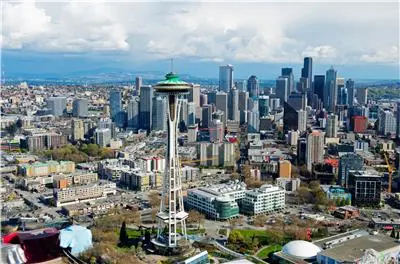Seattle bans grocery no-compete clauses to combat food and medicine deserts
The Seattle City Council unanimously passed an emergency ordinance banning anti-competitive restrictive covenants that prevent new grocery stores and pharmacies from opening in former retail locations. This legislation, Council Bill 121094, aims too combat “food and medicine deserts”-areas with limited access to affordable, healthy food and essential medicines-in neighborhoods such as Beacon Hill, Georgetown, northgate, Rainier beach, and Delridge. Restrictive covenants, often placed by previous retailers, block competitors from using the same property, exacerbating access issues.
The ordinance took immediate effect upon the mayor’s signature and will serve as an interim measure for one year, during which the city will analyze longer-term solutions. The legislation was proposed in response to several recent store closures, including Whole Foods on Capitol Hill and Fred Meyer in Lake City, and declares a public health emergency.
Additionally,Mayor Bruce Harrell issued an executive order directing officials to explore acquiring grocery store properties in food deserts and to develop policies encouraging grocery store openings through changes in land use,zoning,and permitting. There is also discussion about potential public-private partnerships or city-supported grocery stores to ensure food access, though such government involvement has sparked debate over efficiency and competition concerns.
Seattle bans grocery no-compete clauses to combat food and medicine deserts
(The Center Square) – The Seattle City Council on Tuesday unanimously approved an emergency ordinance that bans anti-competitive covenants that prevent new grocery stores and pharmacies from opening in former locations.
This measure aims to address growing concerns about food and medicine deserts – a geographic area with limited access to healthy, affordable food and essential medicines – in the Emerald City. There are food and medicine deserts in several Seattle neighborhoods, including Beacon Hill, Georgetown, Northgate, Rainier Beach, and Delridge, among others.
The newly passed Council Bill 121094 makes “restrictive covenants” illegal. These agreements – put on a property’s deed or lease – block efforts to bring new grocery stores and pharmacies into existing spaces that could easily accommodate them. Former retailers sometimes do this to prevent competitors from opening in their old locations.
“Access to food is a human right and should not be limited due to barriers put in place by grocery store owners through restrictive covenants,” Seattle City Councilmember Debora Juarez said in a statement.
The legislation is an interim ordinance that went into effect immediately upon being signed by Mayor Bruce Harrell the same day. It’s in effect for one year.
The city will conduct an analysis over the next year to inform and prepare permanent legislation.
According to a news release, there have been at least two covenants restricting a property’s future use as a grocery store on Seattle properties. These covenants limited the square footage of any future grocery store at that location for as long as 50 years.
Council Bill 121094 was proposed by Harrell and City Council President Sara Nelson after several store closures were announced, including Whole Foods Market in Capitol Hill and Fred Meyer in Lake City. The legislation also declares a public health emergency due to the recent store closures.
Along with this legislation, the mayor also recently issued an executive order directing city officials to explore acquiring the property of the former grocery store in Lake City to address food desert concerns in the neighborhood.
Additionally, the executive order calls for looking for ways for the city to acquire properties suitable for grocery stores in the future and to develop legislation changing land use, zoning, and permitting regulations to encourage more stores in at-risk neighborhoods. Plans call for the city to then find a third party to operate those sites.
Government involvement in grocery stores has been the focus of some national attention recently due to New York City mayoral candidate Zohran Mamdani’s backing of city-owned grocery stores.
WHAT TO KNOW ABOUT THE ISSUES DOMINATING THE VIRGINIA ELECTION
Harrell’s opponent in the Seattle mayoral race, Katie Wilson, supports exploring publicly backed grocery stores to address food deserts. She envisions the city partnering with a private grocery provider or a union to ensure food access, not necessarily running the store itself. Her proposal involves a “public-option” store to keep food affordable and accessible in neighborhoods that lose grocery stores, according to UFCW 3000.
Critics of government involvement in grocery stores have raised concerns about inefficiency, competition, costs, and political manipulation.
" Conservative News Daily does not always share or support the views and opinions expressed here; they are just those of the writer."



